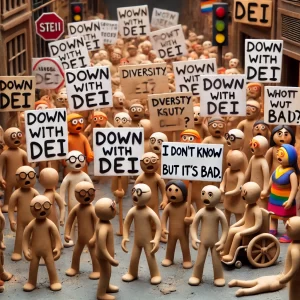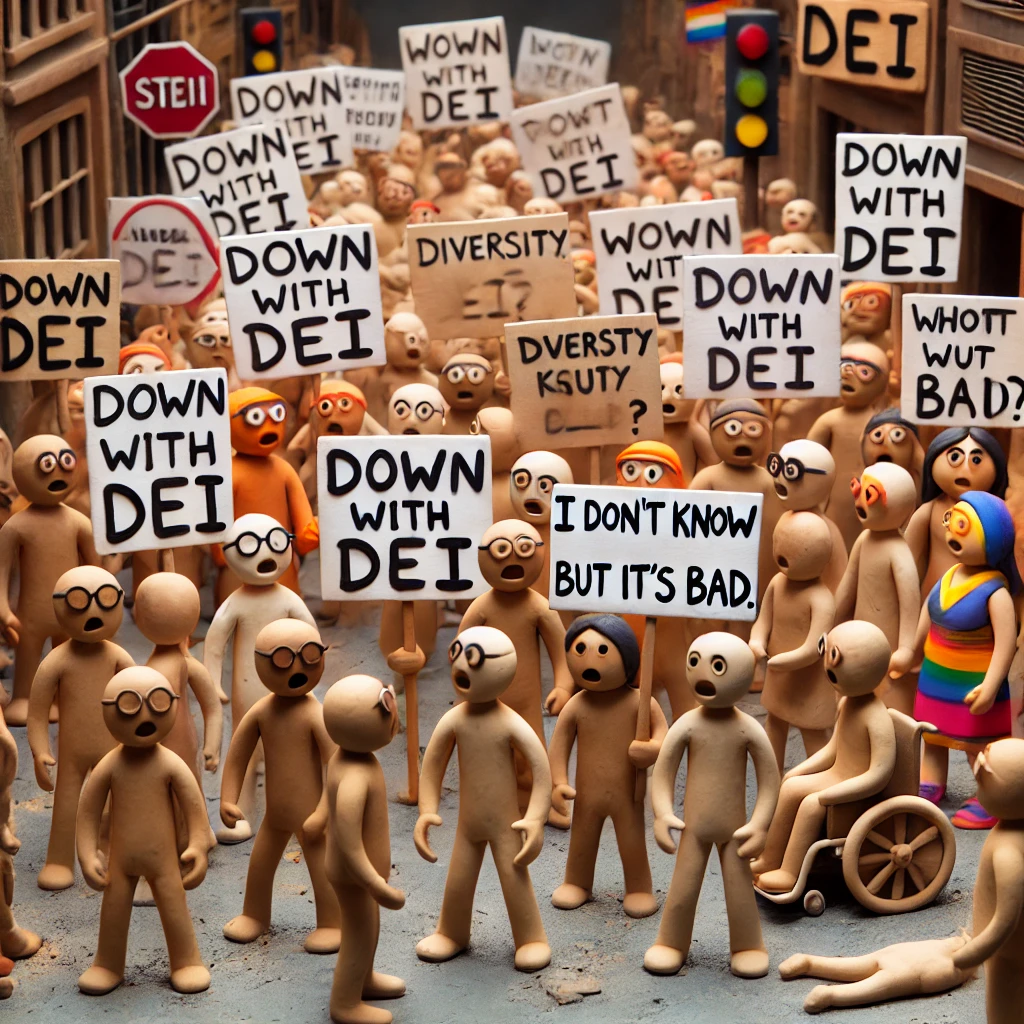 What Everyone Gets Wrong About the DEI Debate (including me)
What Everyone Gets Wrong About the DEI Debate (including me)
As a DEI (Diversity, Equity, and Inclusion) consultant and facilitator for over 30 years, I’ve seen many misunderstandings on both sides of the DEI debate. Let’s cut to the chase. Here are the misconceptions that hold us back:
Here is What Attackers of DEI Get Wrong:
(I’m talking about everyday people, not those responsible for passing laws, and the dissemination and propagation of disinformation to further a political agenda)
Many attackers of DEI don’t know what they’re attacking, nor do they understand what DEI is. According to research and conversations I’ve had with people in organizations, many who resist DEI efforts believe it only benefits nonwhite people and that they will be excluded. In reality, DEI done right results in increased profits, innovation, and performance. If they understood this, they might change their minds—unless they’re deliberate haters or racists.
Ignorance is a big part of the problem.
Here is What Many DEI Professionals Get Wrong
On the flip side, DEI professionals often assume everyone knows what DEI is and why it’s important. They think people who are against it are just racist, homophobic, or afraid of those who are different. This assumption is a mistake. Too many DEI professionals also assume they don’t have to explain DEI to anyone. They’re so busy being right that they forget about the results they want.
This Could Still Work (not to sound like “in my day”) When I first started in the diversity field over 30 years ago, we would break people into small groups and ask them why diversity and inclusion are important to the organization and how they could benefit. By the end of the conversation, many who started with doubts changed their viewpoint and realized their misconceptions.
The Solution to Getting it Right
We need to explain the “why” of DEI. Why are people being asked to take training? How will it help them in their work? It’s more important to get results than to be right. This means including everyone, helping them do their best work, and appreciating what they bring to the organization. It’s more important for people to understand what DEI means in practice than just the words themselves.
Another mistake DEI professionals make is condemning people quickly and canceling them in workshops rather than understanding they can change with the right information. Leaders need to educate their employees on why DEI is important, how they will benefit, and why the organization values it. I have seen some amazing changes through the years.
Engage people in conversations, instead of talking at them. Be available to answer questions, and educate them on why DEI is important and how it can benefit them personally. Create opportunities like cross-functional problem- solving, and facilitated conversation circles where people can interact with those who are different and get to know them.
Let Me Help You Get to the Solution – Contact Me Now
To address these issues, I offer facilitation, coaching, and three key programs:
1. Everyday Inclusive Leadership Skills for Everyone:
Leaders and employees engage with each other. Employees share what they want and need to feel included
2. Everyday Inclusive Leadership Actions for Employees:
Enable employees to practice inclusion with each other and the people they serve.
3. Inclusive Leadership From The Inside Out
Develop skills to be an inclusive leader in all situations and all levels.
Let’s move forward by educating and engaging, not assuming and alienating. This approach will help create a more inclusive and successful environment for everyone.
Unlock the Power of Inclusive Leadership Today!
Imagine a workplace where everyone feels valued and included. My facilitation and coaching programs are designed to help you achieve just that, making your organization more welcoming and effective.
Take the first step towards a more inclusive and productive environment.
Contact Me Now to get started on your journey.
Work with Simma to Create an Inclusive Culture for All
• Additional training programs
• Inclusive leadership coaching and consulting- one on one, or small group
• Facilitate an Everyday Dialogue to bring people together across differences and Increase collaboration, prevent conflict, and end silos



Recent Comments